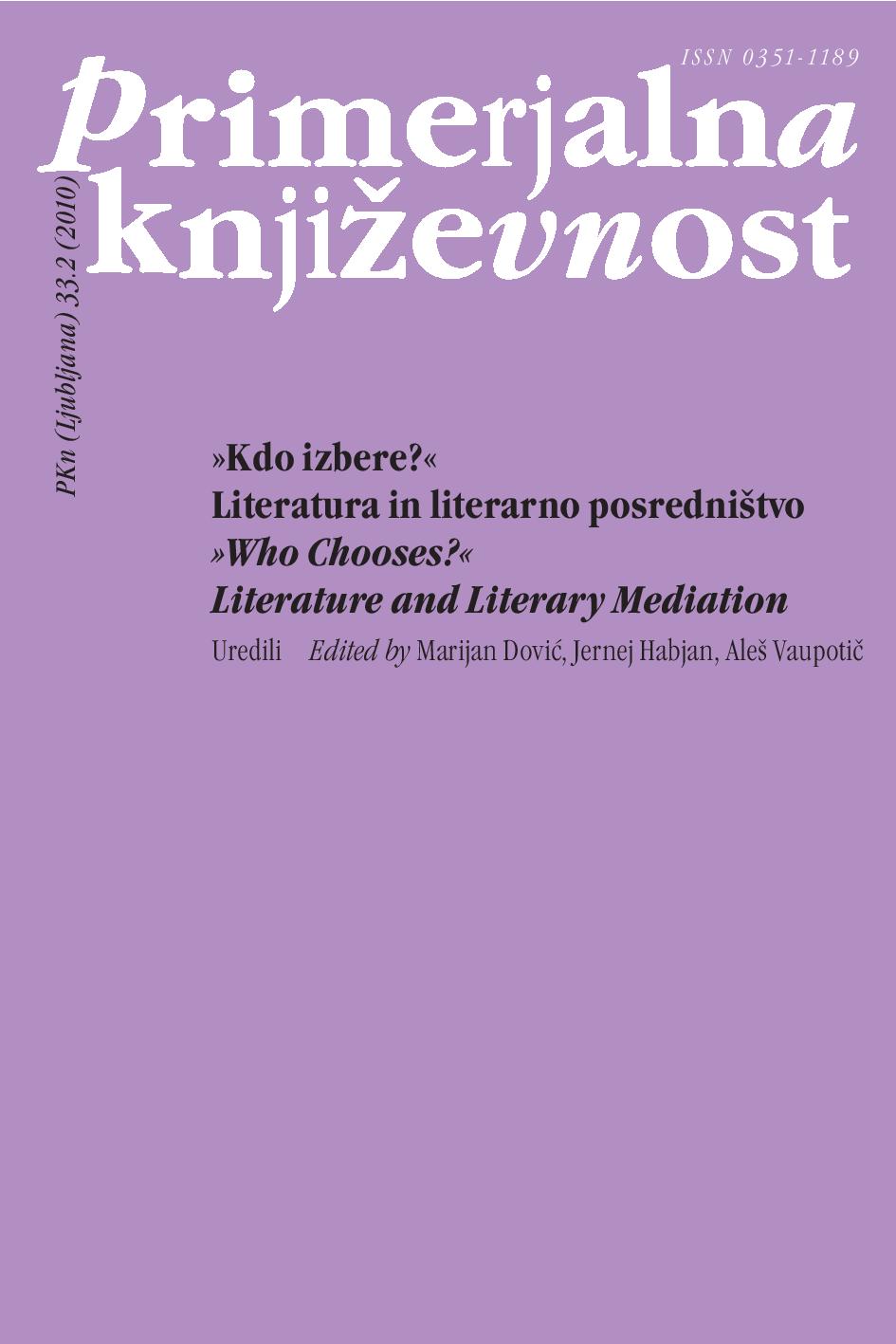Who Chooses What the Reader Reads? The Cybertextual Perspective
Keywords:
information technology, new media, authorship, interactive literature, cybertextAbstract
The subject of literary scholarship includes the author, the literary product, and the reader; all of them are embedded in the socio-historical context. The editor as a subject position (i.e., an institution) is crucial in deciding what books or (in the case of a literary magazine) shorter texts will be published and therefore publicly available in printed form. This paper considers the problem of selection at another level that emerges as an important issue particularly in literary works based on computer technologies. From the cybertextual perspective, Espen Aarseth points out an important distinction between multiple literary-aesthetic experiences and different configurations of the material substrate (e.g., the letters on a screen), which are only subsequently followed by aesthetic concretizations. In the case of new-media literary texts, works that adapt to users are common. The signs themselves that enter the reading act are variable. The impression of the re-emergence of the substantiality of the text is false and the consequence of the “textual machine” is not an “authorless” condition, but the split in the author function, often literally into two persons: the constructor of the apparatus and its user. The selection becomes one of the key methods. This text highlights relevant issues for literary scholarship based on illustrative examples: first, the issue of digital communities and collaborative authorship and, second, the issue of automatic generation of poetry. A particular phenomenon are texts produced by information technologies themselves that nevertheless draw on socio-historically dependent utterances.References
Aarseth, Espen J. Cybertext: Perspectives on Ergodic Literature. Baltimore: The Johns Hopkins University Press, 1997.
Bahtin, Mihail. Estetika in humanistične vede. Ljubljana: Studia humanitatis, 1999.
Barthes, Roland. Le plaisir du texte. Pariz: Seuil, 1973.
Battelle, John. Search: How Google and Its Rivals Rewrote the Rules of Business and Transformed Our Culture. New York: Penguin, 22006.
Bovcon, Narvika. Umetnost v svetu pametnih strojev. Ljubljana: Institut Akademije za likovno umetnost in oblikovanje, UL, 2009.
O’Connor, Timothy, in Hong Yu Wong. »Emergent Properties.« The Stanford Encyclopedia of Philosophy. Ur. Edward N. Zalta. http://plato.stanford.edu/entries/properties-emergent (18. 8. 2009).
CyberArts 2004: International Compendium Prix Ars Electronica 2004. Ur. Hannes Leopoldsleder, Christine Schöpf in Gerfried Stocker. Ostfildern: Hantje Cantz Verlag, 2004.
CyberArts 2006: International Compendium Prix Ars Electronica 2005. Ur. Hannes Leopoldsleder, Christine Schöpf in Gerfried Stocker. Ostfildern: Hantje Cantz Verlag, 2006. [DVD.]
Dović, Marijan. Sistemske in empirične obravnave literature. Ljubljana: Založba ZRC, ZRC SAZU, 2004.
Enzensberger, Hans Magnus. Einladung zu einem Poesie-Automaten. Frankfurt ob Majni: Suhrkamp, 2000. http://jacketmagazine.com/17/enz-robot.html (1. 5. 2007).
– – –. »Zum Projekt eines Poesie-Automaten.« Im Buchstabenfeld. Ur. Peter Weibel. Gradec: Literaturverlag Droschl. 137–141.
Flusser, Vilém. Digitalni videz. Ljubljana: Študentska založba, 2002.
Foucault, Michel. Arheologija vednosti. Ljubljana: Studia humanitatis, 2001.
Hayles, N. Katherine. »Electronic Literature: What Is It?« The Electronic Literature Organization [2. 1. 2007]. http://eliterature.org/pad/elp.html (19. 8. 2009).
Ingarden, Roman. Literarna umetnina. Ljubljana: Studia humanitatis, 1990.
Link, David. Poesiemaschinen/Maschinenpoesie: Zur Frühgeschichte computerisierter Texterzeugung und generativer Systeme. München: Fink Verlag, 2007. http://www.alpha60.de/research/pm (26. 8. 2009).
– – –. »while(true): On the Fluidity of Signs in Hegel, Gödel, and Turing«. Variantology 1. On Deep Time Relations of Arts, Sciences and Technologies. Köln: König, 2005. 261–278. http://www.alpha60.de/research/while_true (20. 8. 2009).
Poesie-Automat. http://poesieautomat.com (23. 2. 2007).
Vaupotič, Aleš. »Literarno-estetski doživljaj in novi mediji – prihodnost literature?« Primerjalna književnost 30.1 (2007): 203–216. http://reelc.net/files/LNM.doc (30. 8. 2009).
– – –. »Narrative and New Media – Realistic Issues« [2005]. http://www2.arnes.si/~avaupo2/files/NNM_21.doc (23. 3. 2009).


